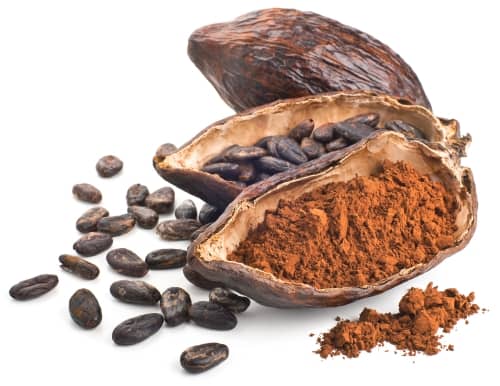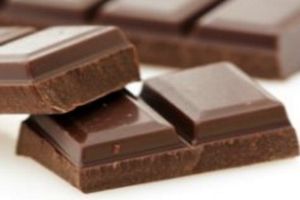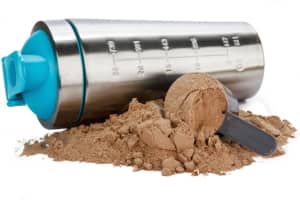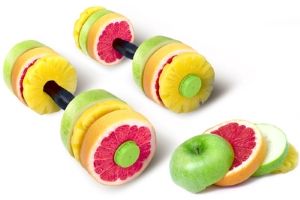The origins of cocoa
Cocoa beans originated in South and Central America. The Maya used them mainly in powder form for the preparation of ritual drinks for the gods, as well as in butter form for the creation of balsam, which is said to have healing and anti-inflammatory properties.
It was in the 16th century that cocoa beans were introduced to Europe. Imported by the Spanish conquistadores, it did not take long for cocoa to seduce us and flavour our drinks. We had to wait until the beginning of the 20th century to find the first chocolate bars in our shops.
Its most widespread use: dark chocolate

In Europe, we consume cocoa mainly in the form of chocolate. We distinguish between variations of chocolate according to the percentage of cocoa it contains. It is no secret that dark chocolate is better for your health than milk chocolate - or worse, white chocolate. To be clear, producers can call their chocolate 'dark' if it contains at least 43% cocoa. However, to find the benefits, you should eat chocolate with at least 70% cocoa.
It is true that dark chocolate has more calories than milk chocolate. This is due to the higher fat content of dark chocolate. These fats come from the cocoa butter. However, it has less sugar and more protein! And it is richer in minerals. During race refreshments, you will find dark chocolate rather than milk chocolate, as it will have a beneficial effect on your sporting performance.
The sportsman's delight

Cocoa contains flavonoids, catechin, vitamin E and zinc - all powerful antioxidants. These antioxidants protect our cells by fighting free radicals. The stress caused by sport promotes the production of these free radicals, making it all the more important for sports people to consume sufficient antioxidants to prevent injury and reduce muscle inflammation. Antioxidants are also thought to help prevent certain cancers and cardiovascular diseases. Read more about Oxidative stress and how to protect yourself with antioxidants.
Speaking of cardiovascular: thanks to the flavonoids mentioned, as well as the polyphenols, cocoa is good for the heart. It increases the good cholesterol, HDL, which carries cholesterol from the arteries to the liver - unlike the bad cholesterol, LDL, which carries cholesterol from the liver to the tissues.
Rich in fibre, cocoa increases the feeling of satiety. This explains why we are satisfied with a square of dark chocolate, while we could finish a whole bar of milk chocolate. In addition, its fat content lowers the glycemic index of chocolate. If you are preparing a low glycemic index dessert, always use the maximum percentage of cocoa!
But let's not forget the other minerals: iron makes up haemoglobin and myoglobin and thus acts on the oxygenation of our cells and muscles. Potassium and magnesium help sportsmen and women to maintain their acid-base balance, and to recover well after exercise sessions, as these minerals play an important role in muscle contraction and thus prevent cramps. Magnesium also has anti-stress and relaxing properties - which can be very important before a competition or after hard training. Read more about the benefits of magnesium and how to take it.

This is a perfect transition. Besides the health benefits, cocoa has a positive influence on our mood. We talk about a natural antidepressant. Here's why:
The alkaloids present in cocoa, such as theobromine, but the best known of which is caffeine, have stimulating and exciting effects on the nervous system and, in small doses, improve sporting performance. They are said to increase concentration and memory. A better motivation could also be developed by tryptophan, an essential amino acid precursor of serotonin. Serotonin, also known as the 'happy hormone', is thought to play a role in reducing anxiety and has antidepressant effects. Another essential amino acid present in cocoa, phenylalanine, induces the synthesis of messengers such as dopamine, the hormone responsible for the feeling of satisfaction. It is because of this dopamine, which is involved in substance dependence, that chocolate is accused of having addictive effects. However, the quantity is far from sufficient to actually develop an addiction.
These effects on our moods explain the desire for a square of chocolate during our little moments of sadness, fatigue or stress.
Let's not abuse chocolate either!
The benefits of cocoa make dark chocolate a real superfood: good for health, fights free radicals, anti-cramp, anti-stress.
Nevertheless, chocolate is still very high in calories, also because of the high fat content of cocoa. We should therefore be satisfied with one or two squares of dark chocolate a day, or a hot chocolate with a tablespoon of cocoa and no added sugar. The benefits are not an excuse to gorge yourself on chocolate!
Then, tyramine and histamine present in cocoa would have, in high quantity, migraine effects.
Choosing your chocolate

How to choose your chocolate? First rule: minimum 70% cocoa. Then, pay attention to the composition and choose a pure cocoa butter chocolate. You can then be sure that you will not find any palm oil. There are also chocolates made from raw cocoa, which allows the goodness of the cocoa to be retained.
Choose organic and fair trade chocolates to combat the poor working conditions and environmental impacts of cocoa harvesting.
And to be beautiful after sport...
As mentioned in the introduction, the Mayans would have used cocoa as a balm. Nowadays, there are many cosmetics made from cocoa butter. It would be ideal for dry and damaged skin, lips and hair. These cosmetics are said to help prevent wrinkles and stretch marks after pregnancy.
And to get back to food, here are some special cocoa recipes!
Avocado and cocoa mousse
Mix half a ripe avocado with two teaspoons of no-sugar-added cocoa powder in a small bowl. Add a tablespoon of agave syrup and put in the fridge for an hour. Enjoy chilled.
Oatmeal banana and cocoa biscuits

Preheat the oven to 180°C. Mash a banana in a bowl. Add 2 tablespoons of rolled oats, 1 egg and 1 tablespoon of no-sugar-added cocoa. Using a spoon, form small biscuits and place them on a baking tray covered with baking paper. Bake for 15 minutes, then turn the biscuits over and heat for another 10 minutes.
Dark chocolate cake without butter and sugar
Preheat the oven to 180°C. Melt 200 grams of dark chocolate in the microwave. Mix the dark chocolate, 200 grams of no-sugar-added applesauce, 50 grams of rolled oats and 3 eggs in a bowl. Pour the mixture into a cake tin covered with baking paper and bake for 30 minutes.
If you still want to sweeten the cake a little: sprinkle with icing sugar after baking.
These articles may also interest you
Magnésium et sport : attention aux carences en magnésium chez le sportif
The 5 best food supplements to improve sports recovery
Alimentation et sport : les vitamines indispensables au sportif
Graines de chia : petite graine – grand pouvoir
Photo credit : Adobe Stock. This article contains commercial links.








